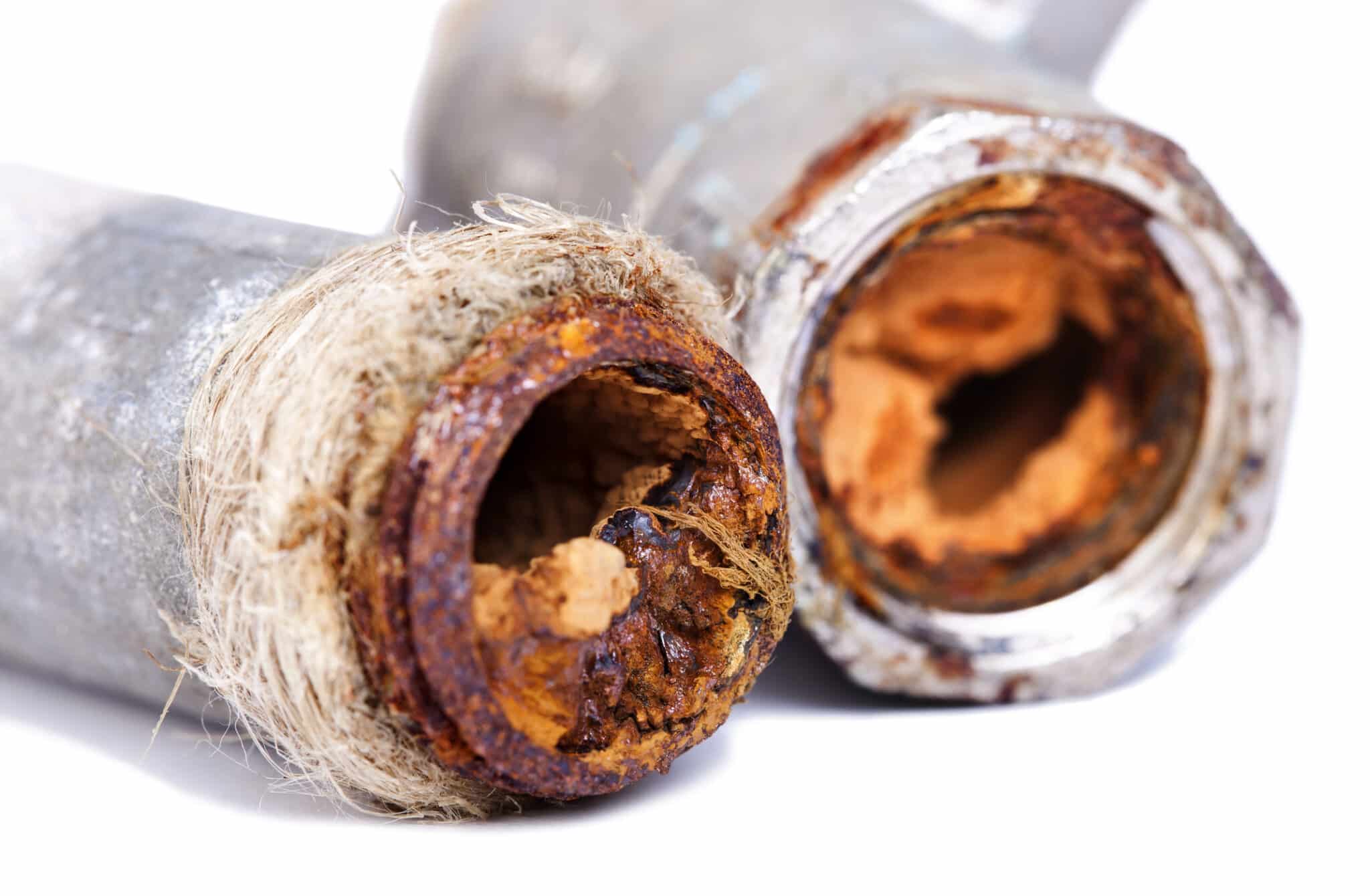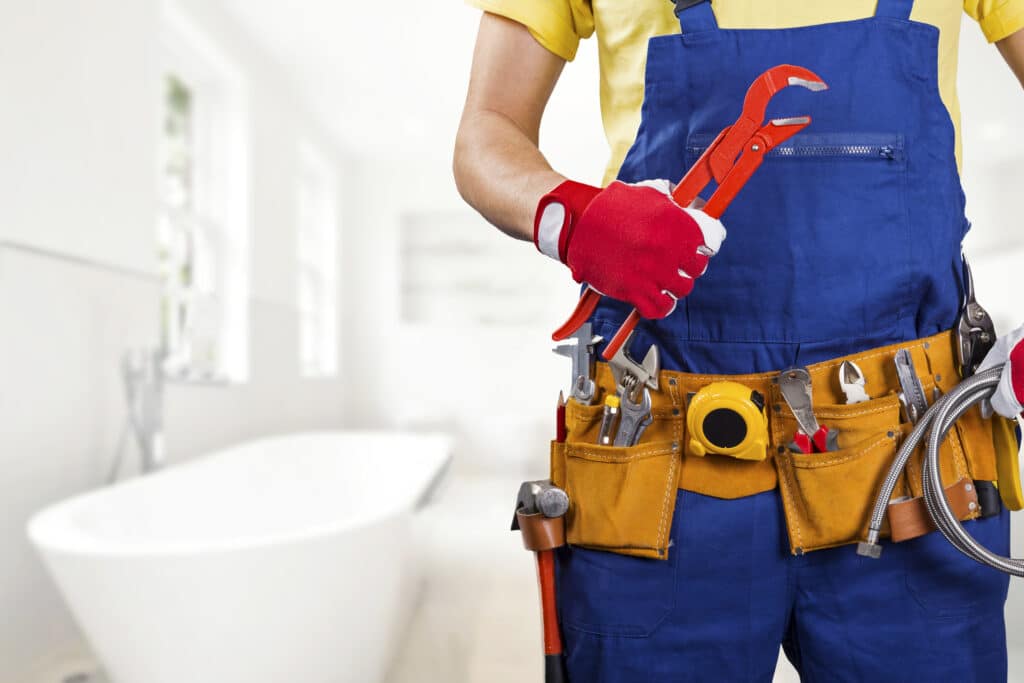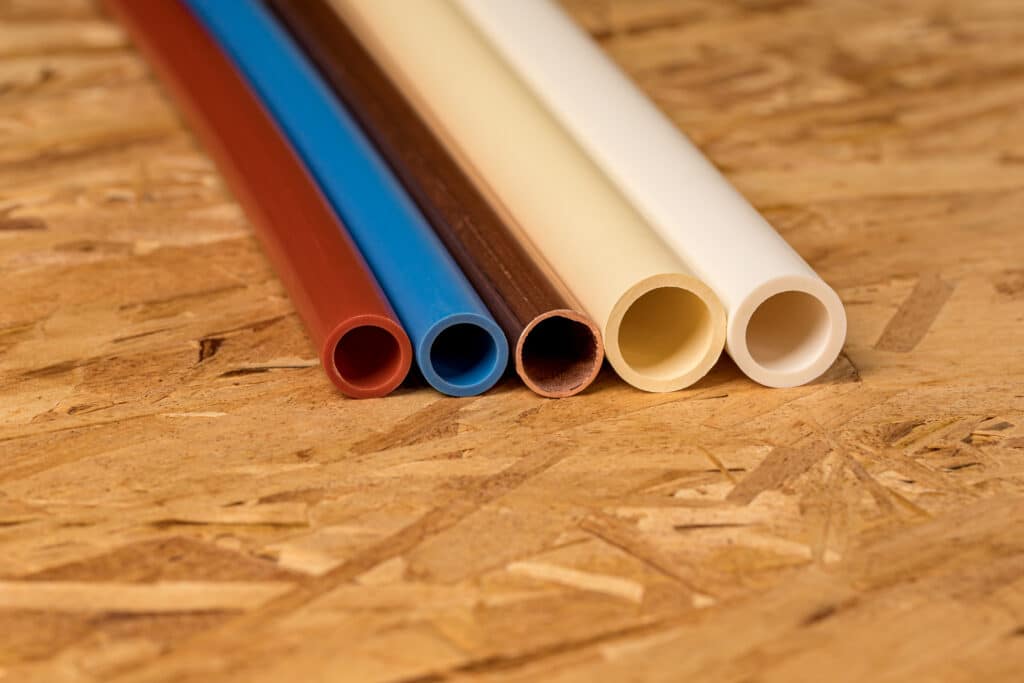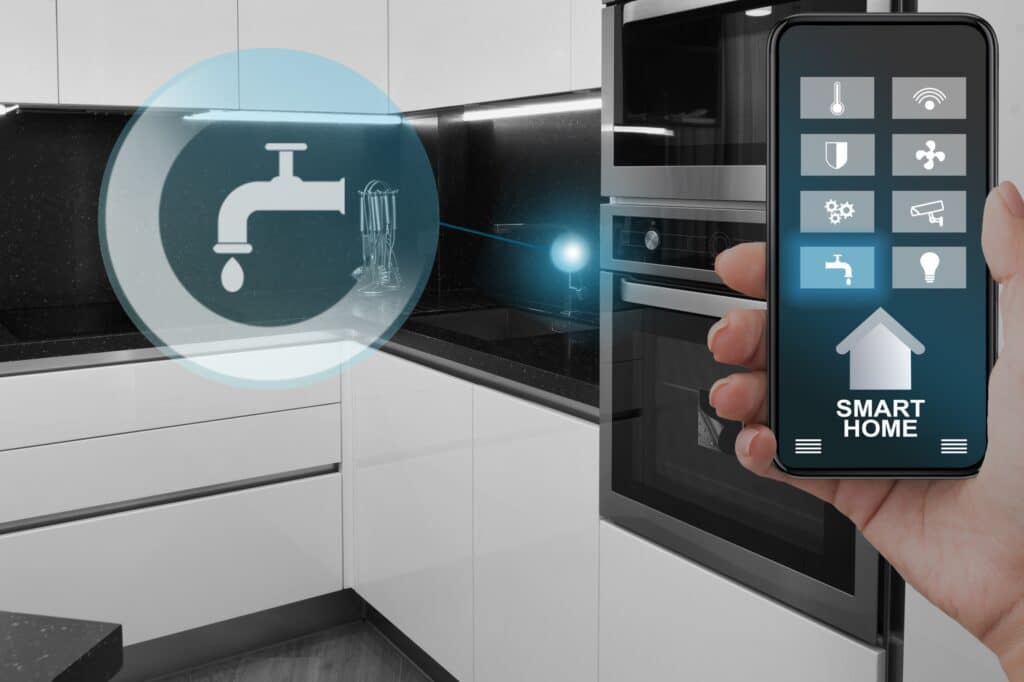The Impact of Hard Water on Home Plumbing
Hard water creates serious challenges for homeowners in Oklahoma City and Amber, especially during the colder month of February. It affects plumbing systems, damages appliances, and raises utility bills without clear warning. Hard water contains high levels of calcium and magnesium, which build up inside your pipes over time. This buildup, known as scale, restricts water flow and reduces plumbing efficiency.
Most residents do not realize the damage until water pressure drops or leaks develop unexpectedly. Scale clogs pipes, ruins fixtures, and shortens the lifespan of water heaters. Homeowners often notice white spots on dishes or soap that will not lather. These are clear signs your plumbing system struggles with hard water issues.
Addressing these problems quickly can save money and prevent future repairs. Waiting too long leads to costly breakdowns and water waste. That is why understanding the effects of hard water is essential for protecting your home’s plumbing. Fortunately, there are expert solutions that don’t involve risky DIY attempts.
Professional help ensures your plumbing system stays efficient and safe. We explore how hard water impacts plumbing and why proactive care makes all the difference. Let’s look at what you need to know and what you can do.
What Is Hard Water and Why It Matters in Oklahoma
Hard water refers to water containing high levels of calcium and magnesium, which are naturally occurring minerals in groundwater sources. In Oklahoma City and Amber, hard water is a year-round issue, but February can be particularly troublesome. Cold temperatures slow water flow, making mineral buildup in pipes more noticeable and damaging. Homeowners should understand how local water hardness impacts daily life and plumbing health.
The mineral content in hard water leads to scale formation inside pipes and on fixtures, reducing water pressure and flow. This process doesn’t happen overnight but gradually causes significant strain on plumbing systems. Pipes become narrower, faucets clog, and water heaters operate less efficiently. These problems increase repair needs and energy costs without homeowners realizing the source.
In areas like Oklahoma City, municipal water reports often show hard water levels above 10 grains per gallon. That level falls into the “hard” category, meaning local households are at high risk for plumbing issues. Constant exposure to hard water reduces appliance lifespan and forces systems to work harder than needed. That’s why many plumbing experts urge homeowners to address this concern early.
Understanding what hard water is and how it affects Oklahoma homes allows residents to take meaningful action. It’s not just about comfort, it’s about preventing damage. Recognizing the warning signs now can help preserve your plumbing for years to come.
How Hard Water Damages Pipes and Fixtures Over Time
Hard water may look harmless, but it steadily wears down your home’s plumbing system from the inside out. In Oklahoma City and Amber, homes frequently deal with mineral-rich water that carries calcium and magnesium into every pipe. These minerals cling to the interior of plumbing lines, gradually forming thick layers of scale. Over time, that buildup reduces pipe diameter, restricting flow and increasing pressure.
This pressure puts stress on joints and connectors, which weakens them and raises the chance of leaks or bursts. Even strong metal pipes aren’t immune to the corrosive effects of prolonged hard water exposure. Eventually, corrosion compromises the structural integrity of your plumbing, leading to expensive replacements. Early warning signs include noisy pipes, fluctuating water pressure, or slow drains.
Fixtures suffer, too. Hard water clogs the small openings in faucets, showerheads, and aerators, making water sputter or spray unevenly. Mineral deposits leave crusty white stains that are hard to remove and often return quickly. Over time, these minerals corrode delicate internal parts, reducing functionality and shortening product life. Replacing fixtures becomes more frequent and costly.
What starts as a silent, invisible issue turns into a major plumbing headache. Protecting your fixtures and pipes begins with recognizing the steady harm that hard water causes. Acting now can preserve your system for years to come.
Signs Your Home Is Affected by Hard Water
Mineral-rich water leaves behind small clues that can signal bigger problems if not addressed quickly. One early sign is inconsistent water pressure, especially at sinks and showerheads. When mineral deposits begin to clog fixtures, water flow weakens and becomes unpredictable. This slow decline often goes unnoticed until daily routines start to feel frustrating.
You may also find yourself rewashing dishes that come out cloudy, even after a full cycle. This residue doesn’t come from poor cleaning, it’s a buildup of minerals that cling to surfaces. Glassware, silverware, and even sinks develop a dull film that’s tough to scrub away. These visual indicators often point directly to water quality issues.
Appliances that use water daily are also impacted, often in subtle but costly ways. Over time, mineral buildup strains their internal parts, leading to strange noises, longer cycles, or total breakdowns. If repairs become frequent or performance drops, it’s time to consider what’s flowing through your pipes.
Even personal care takes a hit, dry skin, brittle hair, and scratchy laundry are common symptoms in homes dealing with this issue. These discomforts may seem minor but reflect ongoing exposure to untreated water. Spotting these signs early is essential to protect your comfort and your plumbing.
Why February Makes Plumbing Problems Worse
Colder weather in February makes plumbing systems more vulnerable, especially in areas like Oklahoma City and Amber. Low temperatures cause water to move slowly through pipes, giving minerals more time to settle and form buildup. As these deposits grow, they restrict flow and increase pressure within your plumbing system. This seasonal slowdown magnifies the existing damage caused by mineral-heavy water.
Homes built before modern plumbing standards face even greater risks during winter months. Older pipes are more likely to develop cracks or leaks under increased pressure. Combine that with existing mineral buildup, and you have a recipe for unexpected breakdowns. What might be a small annoyance in warmer months becomes a serious problem during February’s chill.
Even indoor appliances feel the effects of colder temperatures. Water heaters must work harder to deliver warm water, especially when sediment already lines the tank. That extra workload can lead to overheating, burnout, or reduced performance when you need it most. Efficiency drops sharply, and energy bills climb as a result.
If your plumbing system already shows signs of strain, February’s conditions will only make things worse. Paying attention to how your home reacts this month can help uncover hidden issues. Early professional help prevents seasonal challenges from turning into full-scale emergencies.

How Plumbing Materials React to Mineral Buildup
Different plumbing materials handle mineral-rich water in very different ways, with some breaking down much faster than others. Galvanized steel pipes, common in older homes across Oklahoma, tend to corrode quickly under mineral pressure. The rough interior surface gives minerals places to attach and grow, creating thick scale deposits. Over time, this leads to clogs, rusting, and a higher risk of complete pipe failure.
Copper plumbing, while more durable, still faces challenges from repeated exposure to mineral-heavy water. Though less likely to rust, copper can develop internal pitting due to scale formation. This pitting weakens pipe walls and increases the risk of pinhole leaks over time. Small leaks may go unnoticed until water damage becomes visible, often behind walls or under flooring.
Even plastic piping, like PEX or PVC, is not entirely safe from the effects of mineral buildup. While resistant to corrosion, these materials can still suffer from blockages at joints or fixtures. Appliances connected to plastic lines also experience reduced performance if scale enters their systems. This hidden impact leads to inefficiencies and higher maintenance costs.
Understanding how various materials react can guide smarter decisions about plumbing care and upgrades. Knowing what your home is made of helps you respond faster to the signs of damage. No matter the material, consistent exposure to hard water eventually takes a toll on system performance and longevity.
The Role of Professional Plumbers in Managing Hard Water
Qualified plumbers play a key role in identifying and resolving hard water issues before they escalate into costly damage. Their training allows them to spot early signs of mineral buildup that homeowners may overlook. With specialized tools, they inspect pipe interiors and evaluate appliance efficiency for signs of scale formation. This proactive assessment ensures small problems are addressed long before major repairs become necessary.
Plumbing professionals also recommend tailored solutions based on your home’s specific plumbing setup and local water quality. They may suggest installing a water softening system to neutralize minerals before they enter your pipes. Unlike temporary fixes, this long-term solution protects every fixture and appliance connected to your plumbing system. It reduces future damage, improves performance, and extends the life of your home’s infrastructure.
During colder months like February, expert help becomes even more critical. Cold weather intensifies hard water symptoms and places extra stress on your plumbing system. Licensed plumbers can winterize vulnerable areas and ensure your water heater operates efficiently despite seasonal demands. Their preventive work can save homeowners from emergency repairs and expensive replacements.
Relying on professionals ensures that problems are handled safely, without guesswork or risky DIY attempts. Their experience and knowledge offer peace of mind and long-term protection. When it comes to hard water, expert intervention is the best line of defense for your plumbing system.
Long-Term Benefits of Addressing Hard Water Early
Taking action against hard water early provides long-term advantages that protect your home, budget, and overall comfort. The sooner you address mineral buildup, the less damage your plumbing system will endure. Pipes remain clear, fixtures stay functional, and appliances run more efficiently for years. These preventative steps reduce unexpected breakdowns and extend the life of costly household equipment.
Water heaters, for example, last significantly longer when not forced to heat through layers of mineral sediment. Efficient operation also means lower utility bills and fewer service calls. Softened water prevents strain on systems, saving homeowners both time and money. The cost of early treatment is small compared to long-term replacement and repair expenses.
Early intervention also improves water quality in noticeable ways. You’ll enjoy better lather from soaps, cleaner dishes, and softer laundry. Skin and hair feel better, while faucets and showers stay free of stains and blockages. These everyday improvements reflect a plumbing system working in harmony with your home.
Ultimately, tackling hard water issues before they escalate gives you control over your plumbing’s future. With regular professional care, you avoid the stress of emergency repairs and costly damage. Making this investment now offers peace of mind and lasting protection throughout every season.

Why Water Softeners Are a Smart Investment
Installing a water softener is one of the smartest decisions a homeowner can make when dealing with mineral-heavy water. These systems work by removing calcium and magnesium, the minerals responsible for most plumbing issues. As a result, your pipes, fixtures, and appliances stay cleaner and more efficient. This preventive solution offers both immediate and lasting benefits for your entire household.
Once installed, water softeners begin protecting your plumbing system from new buildup, helping existing scale dissolve more gradually. This improves water flow, reduces strain on water heaters, and restores full functionality to your fixtures. Showers feel more refreshing, dishes come out spotless, and detergents work better with softened water. Over time, this leads to fewer repairs and greater savings.
A water softener also contributes to better energy efficiency throughout your home. Water heaters operate with less resistance and require less power to reach target temperatures. That means lower monthly bills and a reduced risk of burnout during peak usage, especially in winter. Maintenance costs also drop, as appliances last longer with minimal scale interference.
Choosing to install a softener shows a commitment to long-term home care. It’s not just about comfort, it’s about safeguarding your investment. For homes in Oklahoma City and Amber, where hard water is a known issue, this solution offers real, measurable value.
Protect Your Home from Hard Water Damage Today
Mineral buildup from hard water doesn’t just affect your plumbing, it impacts your comfort, appliances, and wallet over time. Whether it’s clogged pipes, worn-out fixtures, or rising utility costs, untreated hard water creates avoidable stress for homeowners. With winter challenges in full swing during February, now is the perfect time to take action. Early intervention keeps your system running smoothly and prevents bigger problems down the line.
Benjamin Franklin Plumbing of Oklahoma City understands the unique water conditions facing homes in Oklahoma City and Amber. Our licensed professionals offer customized solutions to combat hard water and preserve your plumbing’s health. We install water softeners, provide expert maintenance, and inspect your system for early signs of damage. Every service is designed to keep your home protected year-round.
Don’t wait for costly breakdowns or sudden repairs to take control of your water quality. Trust the team that delivers reliable, professional plumbing care backed by years of experience. If you’ve noticed the warning signs of hard water in your home, we’re here to help.
Contact Benjamin Franklin Plumbing of Oklahoma City today to schedule your consultation and start protecting your home from hard water damage.
Frequently Asked Questions About Hard Water
-
What causes hard water in Oklahoma homes?
Hard water results from high levels of calcium and magnesium found naturally in local groundwater. As water moves through soil and rock, it collects these minerals. In areas like Oklahoma City and Amber, hard water is common due to regional geology. These minerals create buildup in plumbing, leading to efficiency issues over time.
-
Can hard water affect my health?
Hard water doesn’t pose a direct health risk for most people, but it can cause skin and hair to feel dry. It also affects how well soaps and shampoos work, leading to residue buildup. While not dangerous, these side effects are irritating. Addressing hard water improves comfort and hygiene without altering water safety.
-
How do I know if I have hard water?
You might notice spots on dishes, soap that won’t lather, or lower water pressure. Other signs include stiff laundry and mineral stains on fixtures. These indicators suggest mineral buildup inside your plumbing. A licensed plumber can test your water and confirm the hardness level with professional tools.
-
Will hard water damage my appliances?
Yes, appliances that use water, like dishwashers, washing machines, and water heaters, are all affected. Mineral deposits reduce efficiency and shorten their lifespan. Over time, repairs become more frequent and costly. Installing a water softener helps prevent this damage.
-
What’s the best way to fix hard water problems?
The safest and most effective solution is professional installation of a water softener. This system treats water before it enters your plumbing. It prevents buildup, improves water quality, and extends appliance life. Always consult a qualified plumber for proper setup and long-term care.
Don’t let hard water quietly damage your home’s plumbing and appliances. Protect your investment with expert care and lasting solutions. Benjamin Franklin Plumbing of Oklahoma City specializes in identifying and treating hard water issues before they become costly problems. Our skilled professionals are ready to help homes in Oklahoma City and Amber stay safe year-round. From inspections to softener installations, we’ve got you covered.
Contact Benjamin Franklin Plumbing of Oklahoma City today to schedule your hard water consultation and take the first step toward reliable, worry-free plumbing.























